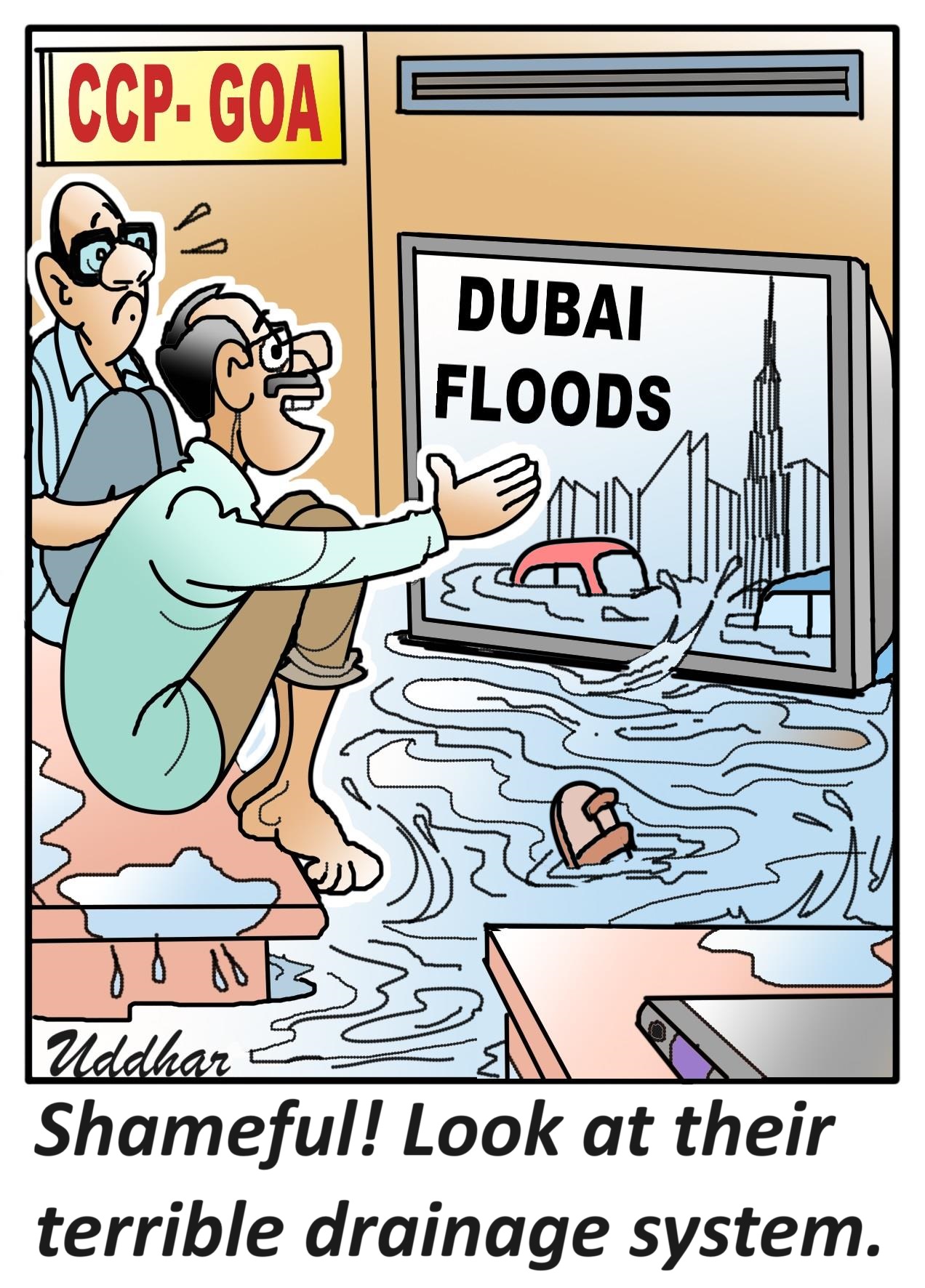The issue of safety of public on our Goa roads has always been a subject on which concerned citizens often dwell in Press columns, albeit without any improvement on the ground.
Neither the people at the wheels nor the authorities seem to have paid any attention to this area of immense concern, which takes hundreds of precious lives to the grave or the funeral pyre, every year, and plunges thousands into irreversible anguish and deep pain. Even NGOs that do yeoman service to the community, in various other fields, have totally overlooked or ignored this aspect of social responsibility we have towards each other in driving/riding cautiously, avoiding obstruction or substandard work on the roads, having speed-breakers painted and getting enforcement authorities to ensure discipline on the roads, to avoid these turning into rivers of blood.
India has the second largest network of roads in the world, has only 1% of world’s vehicles, yet accounts for 11% of world’s road fatalities. Around 1.5 lakh people lose their lives every year in three times the number of accidents, many of which could possibly be avoided had motorists been more cautious and less reckless and enforcement of traffic laws been stricter.
The recent amendment to Motor Vehicles Act hiking fines for violation of traffic rules in the country was meant to reduce road accidents caused by careless motorists who found it easy to pay small fines and get away with violations. That being the intention, the decision was indeed praiseworthy though long overdue. However, with a Government, which seems concerned mainly at boosting its financial position, at any cost, one does not know whether the desired objective will eventually be achieved. In Goa, the Government enforced the amendment only after the results of elections were announced when it ought to have done it earlier. This was, so as not to incur the wrath of the people, who were already opposing the hike, much before it came into force. The Transport Minister claimed that Government revenue on fines doubled with the hike and that violations were reduced to half, which was expected. However, he made no mention about whether accidents had been reduced, which is the main purpose of the amendment.
Introduction of intercity transport, with buses circling our towns regularly would have been a good step if the administration is serious in reducing pressure on our roads and consequently the accidents. It would minimise traffic congestion, parking problems, petrol consumption, dents on public pockets and provide employment and earning opportunities. Similarly, an extension of railway line, if feasible, from Karmali to outskirts of Panjim, with one or two trains around opening and closing office hours, between Margao-Vasco-Panjim would have also eased road traffic on these routes.
The Government could also subsidise eight to ten-seater rickshaws, for point to point service and with reasonable fares, which would also provide employment to some of our people.
Another suggestion made to a few IGPs and DGPs in Goa, some years back, as also to Traffic authorities, was for a two-wheeler to move regularly around our towns with two traffic policemen regulating the traffic and fining violators, on the spot. While they found the suggestion easily implementable, it never took off. It would have been a double-edged sword in taking violators by surprise, thus bringing good revenue to the Govt and in avoiding traffic jams, which are regular features in our small towns. Instead, we find seven or more Traffic Police standing at one known spot to fine motorists without helmets.
Let us hope the new DGP, who has had earlier a stint in Goa, will motivate his subordinates to work more zealously to eliminate the curse of road accidents, which bring so much pain and agony to the victims and their families. He has surely, by now, realised that road discipline is still wanting in Goa and the Police need to enforce it, at all costs, for the good of Goa and Goans.
Without waiting for only the law enforcers to ensure steps to curb accidents, it is up to us, as conscientious citizens to behave responsibly, be considerate to all on the roads, particularly towards pedestrians and weaker vehicles. Slowing down near pedestrian crossings is not something that needs to be taught to us. The Traffic Police must insist on this. The pedestrian is always the most respected road user in the world, except in India. We must regretfully acknowledge that despite our tall claims to being one of the most literate States in the country with a high degree of civility, we often fail to display these attributes on the roads. The otherwise “sossegado” Goan is never so on Goan roads. No one seems safe on Goa roads and no one is sure to return home alive or unharmed once one steps out. Road crashes are also what Goa is notorious for.
We need also to be safe ourselves by wearing crash helmets and seat belts, possibly by all occupants, though not mandatory, as these steps do save lives in case of major or even freak accidents, as we have often observed.
In short, let us live as concerned and civilised citizens, always conscious of the possible harm we may cause to others and that our victim’s life could be more precious than ours, for if he/she be the sole breadwinner of the family, we could plunge it into penury and desperation. It is incumbent upon us to make Goa, near accident free, and a better place to live in.
(The author is a retired banker)
